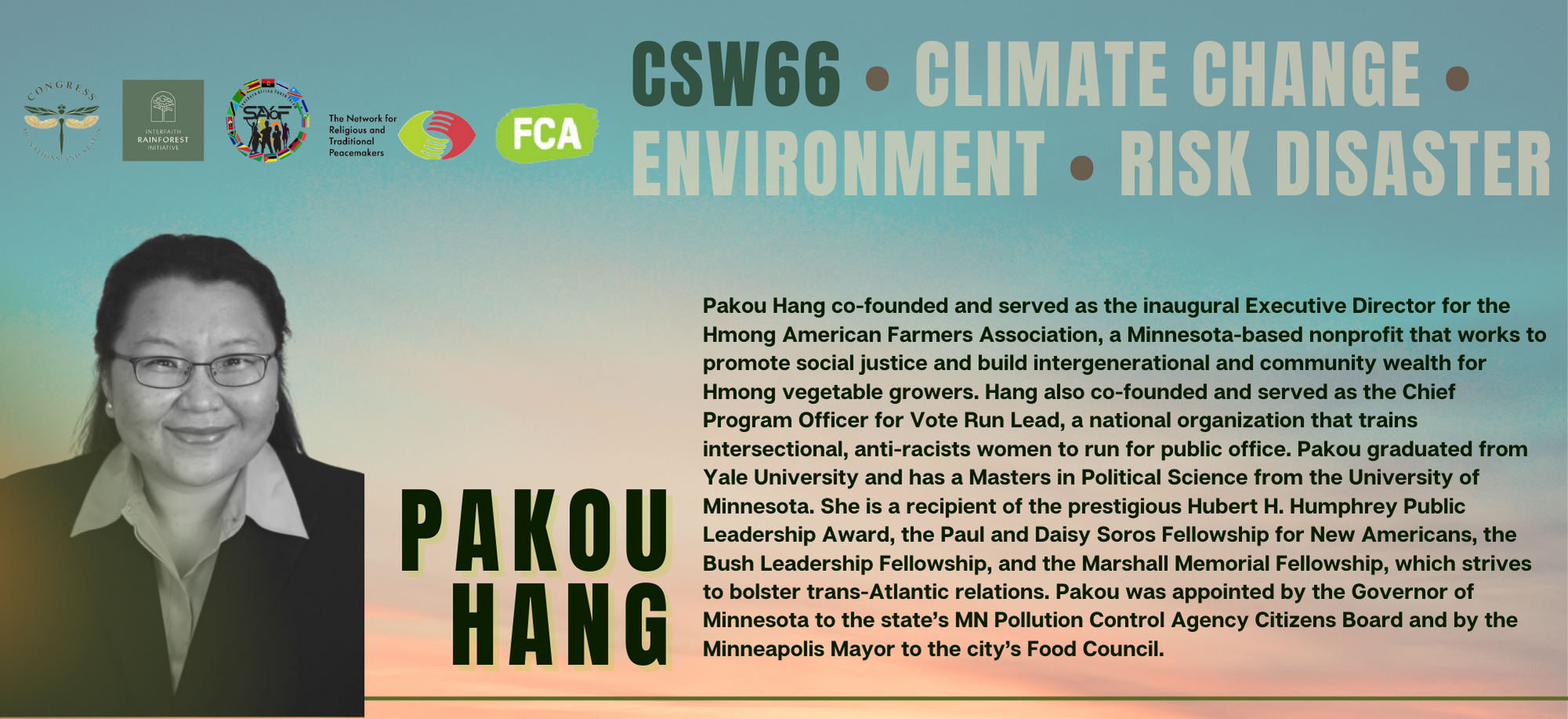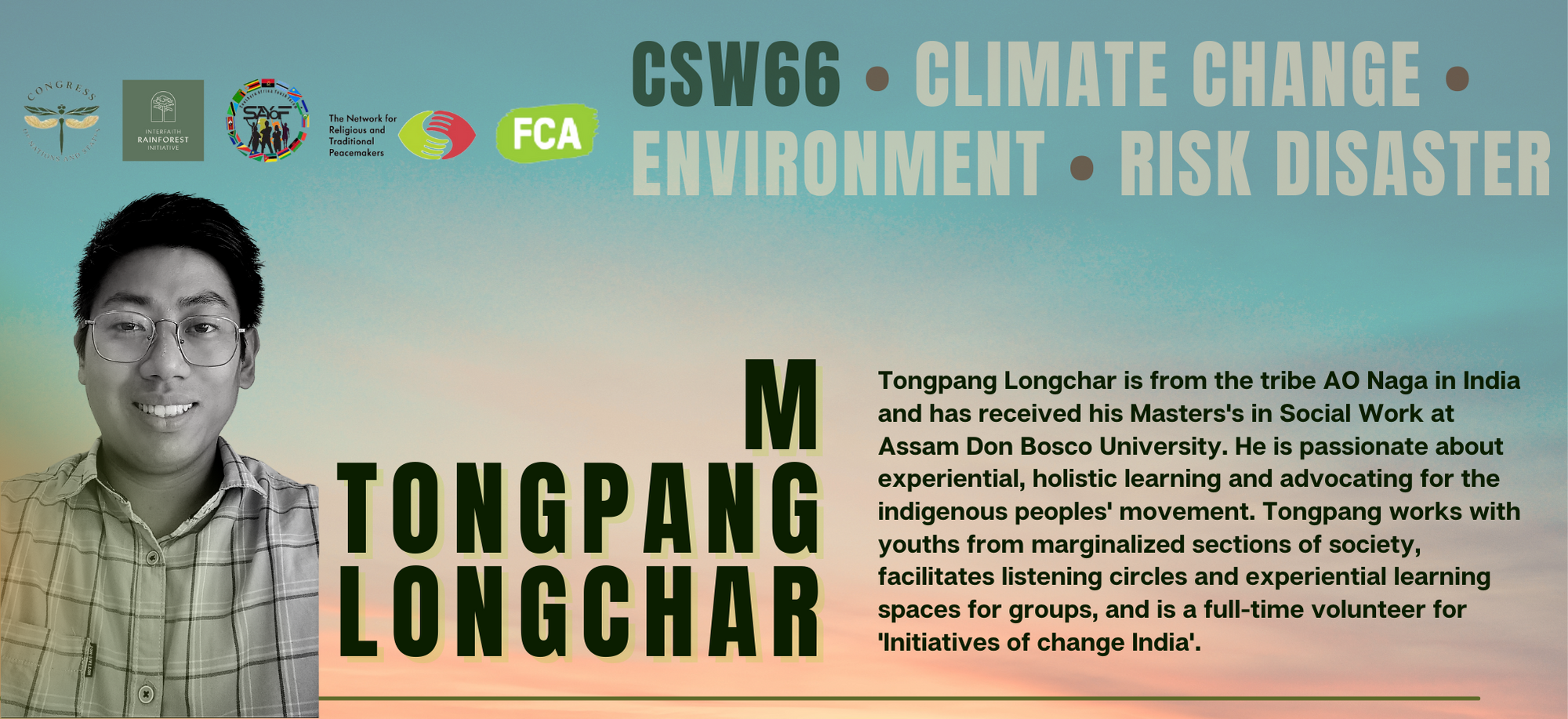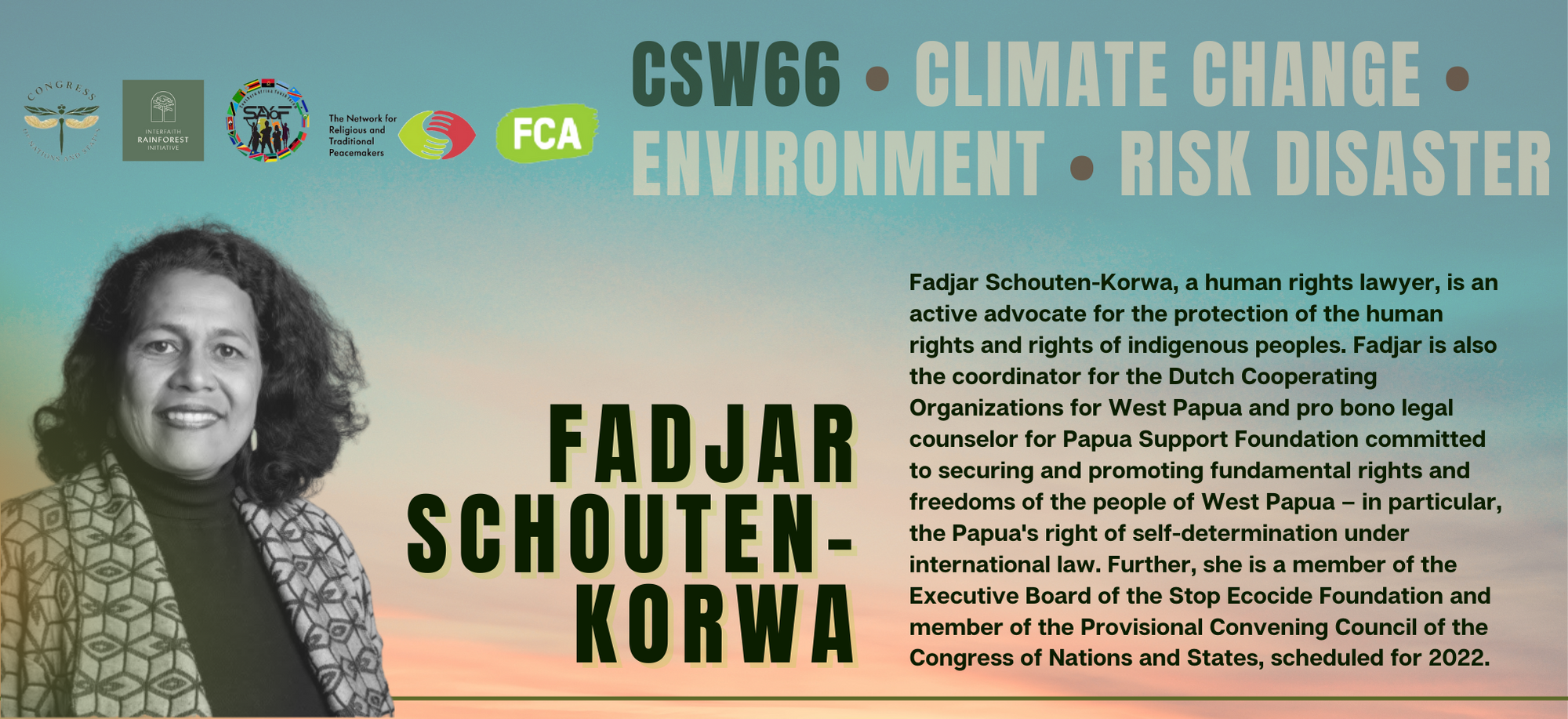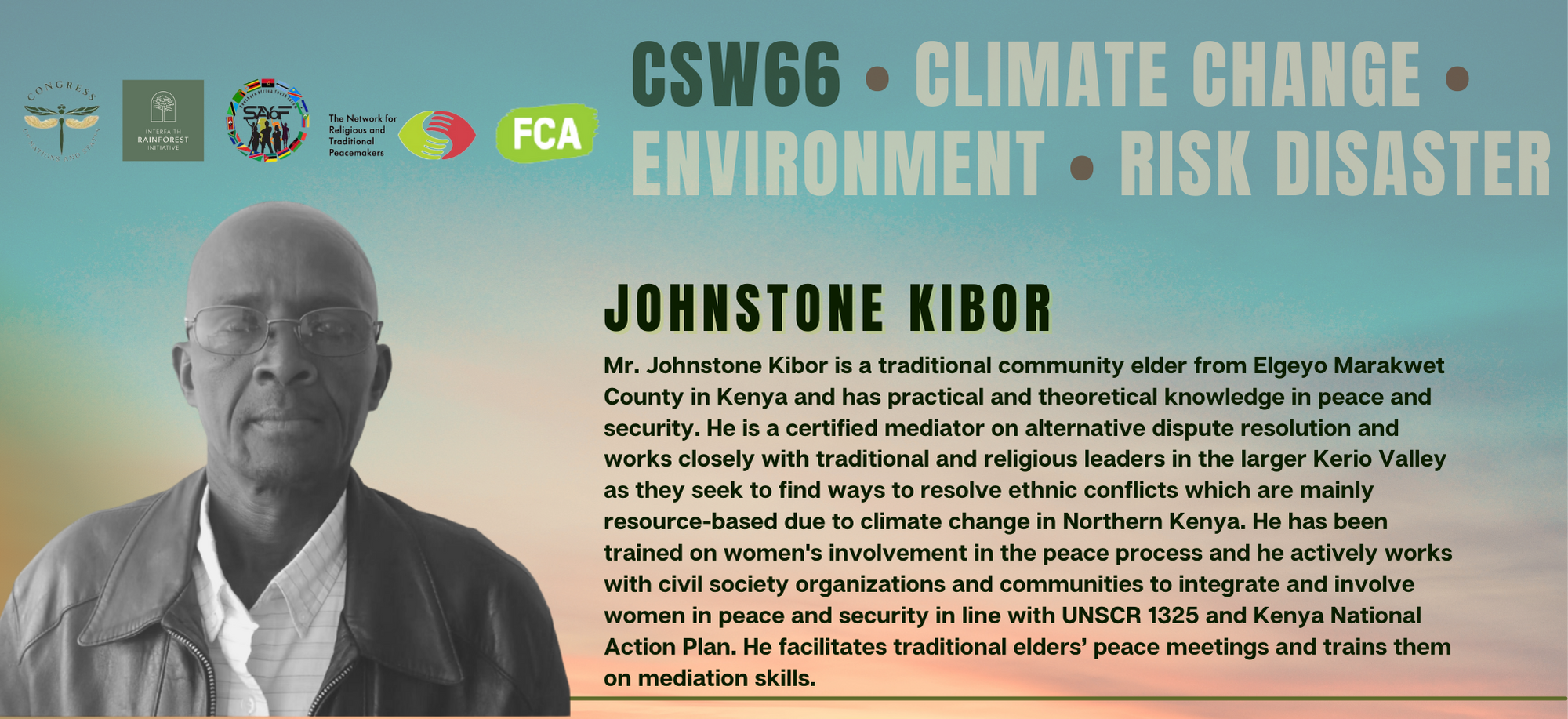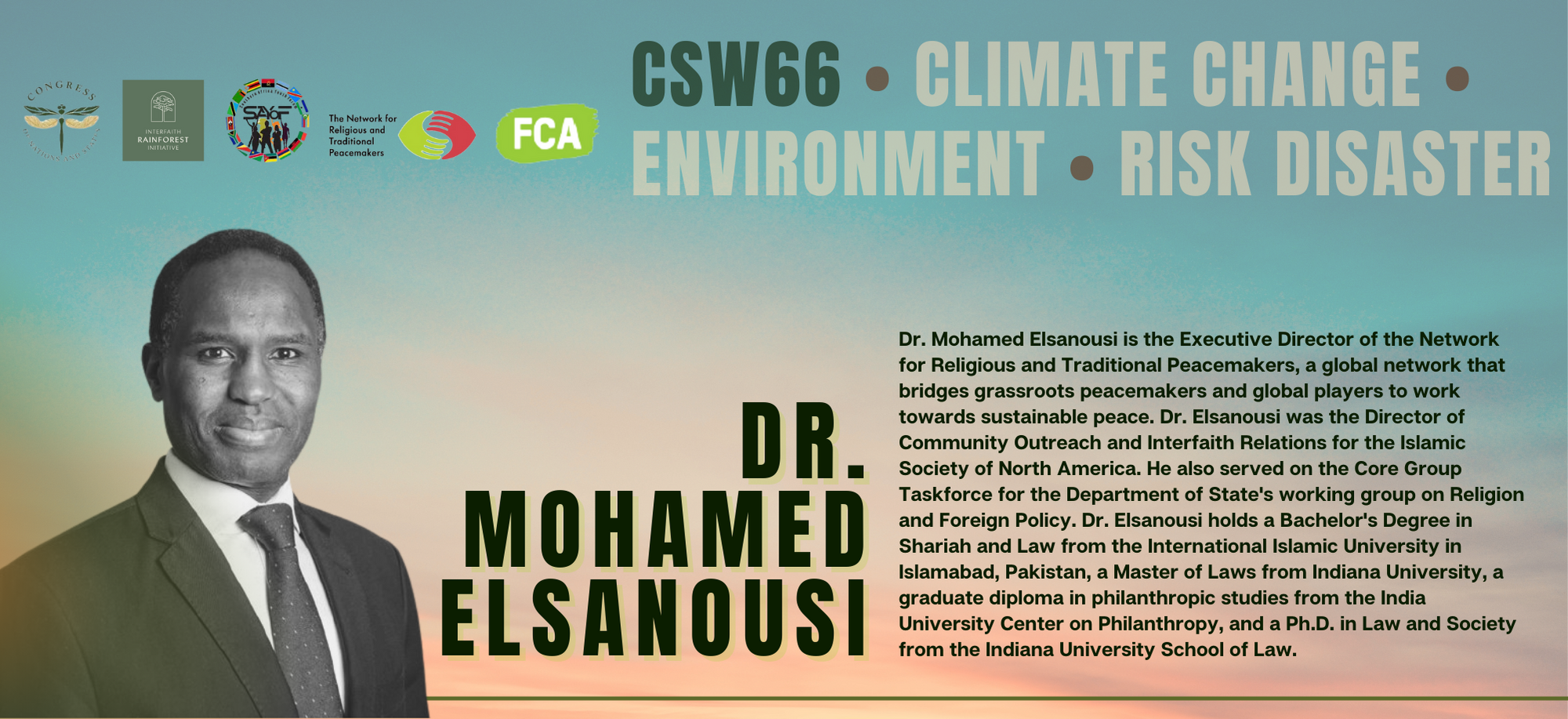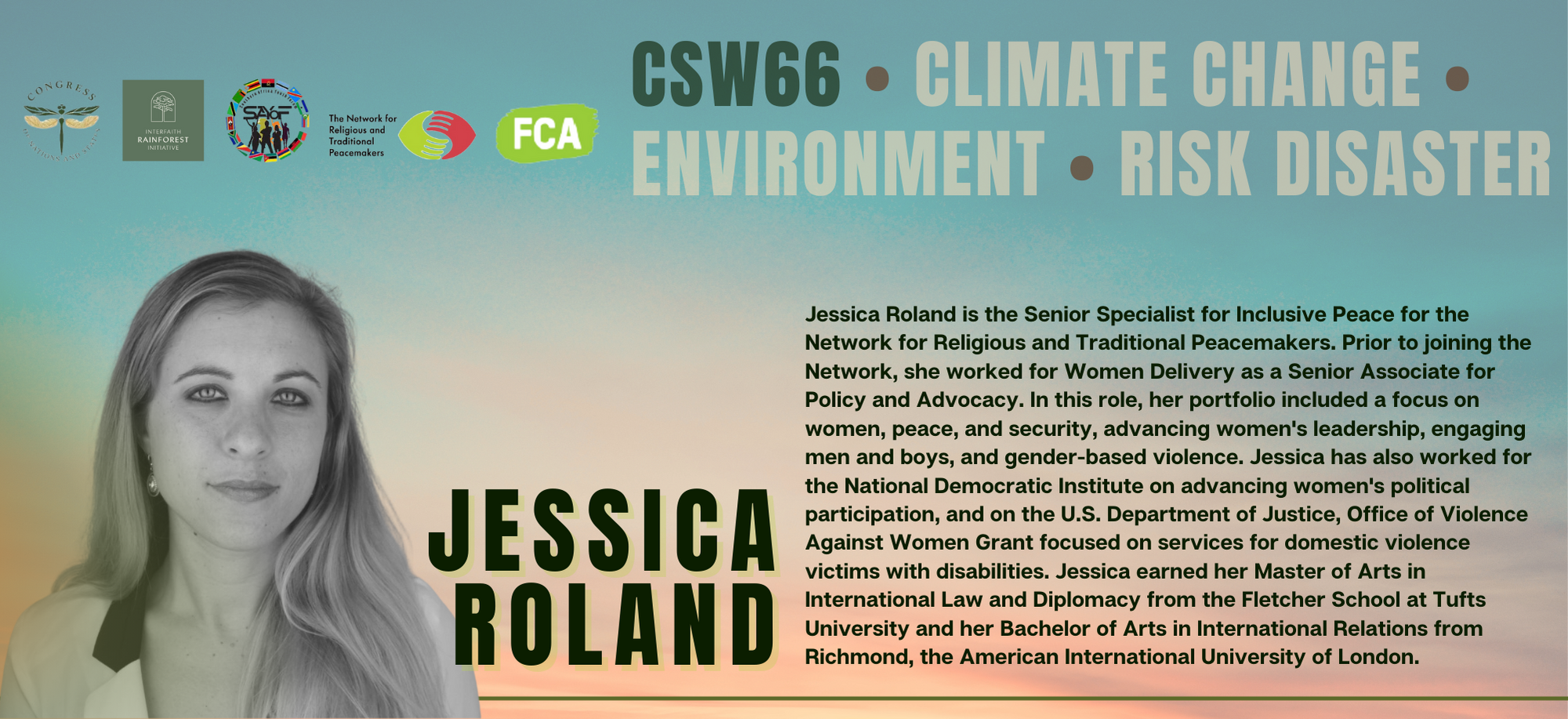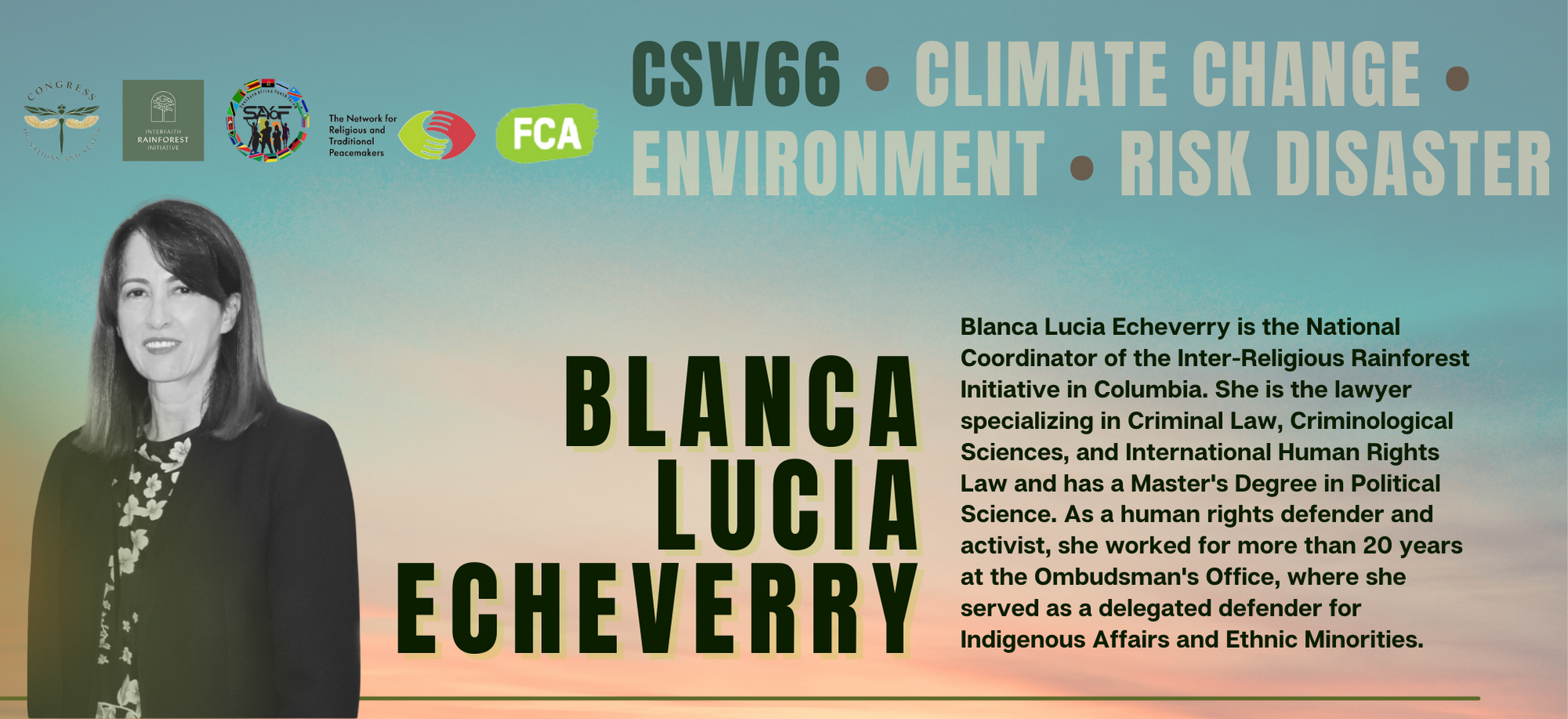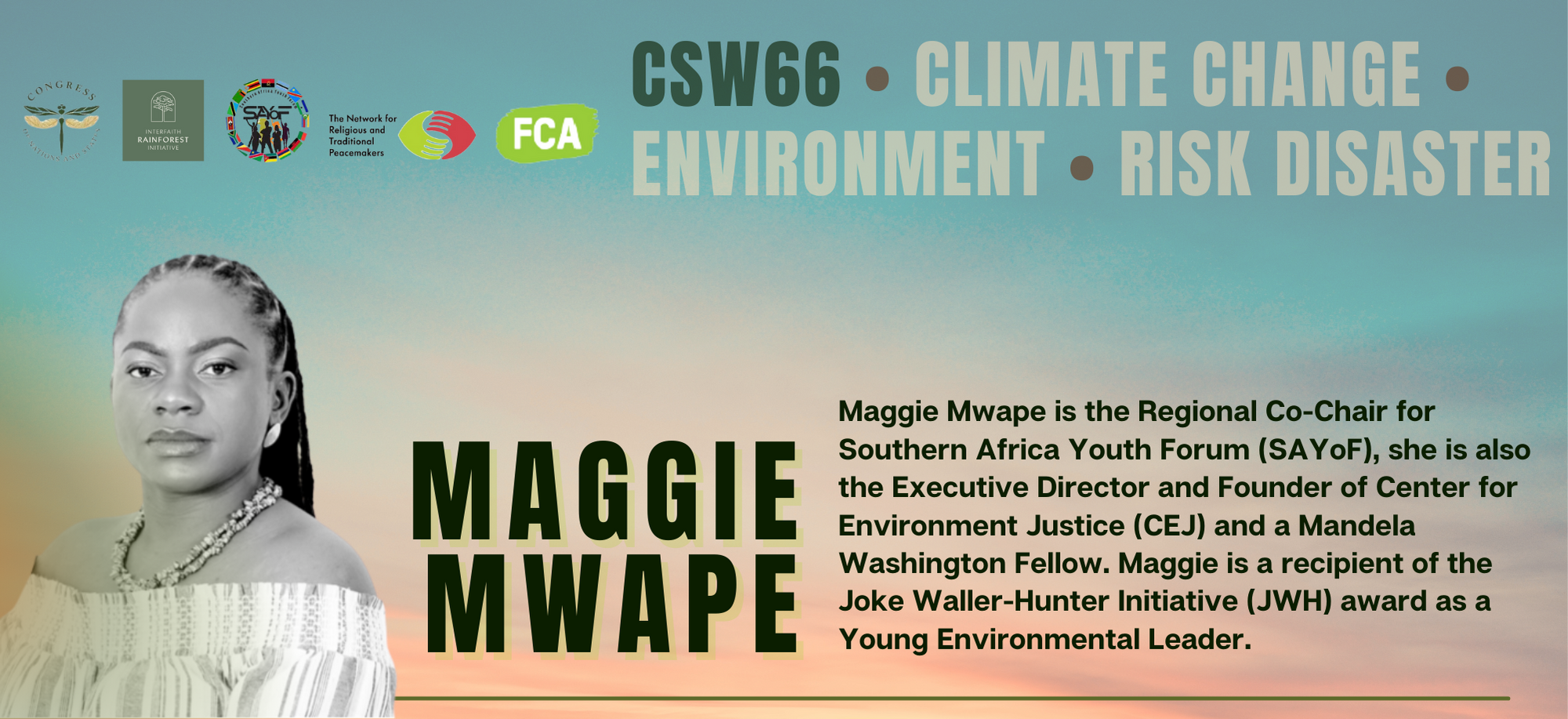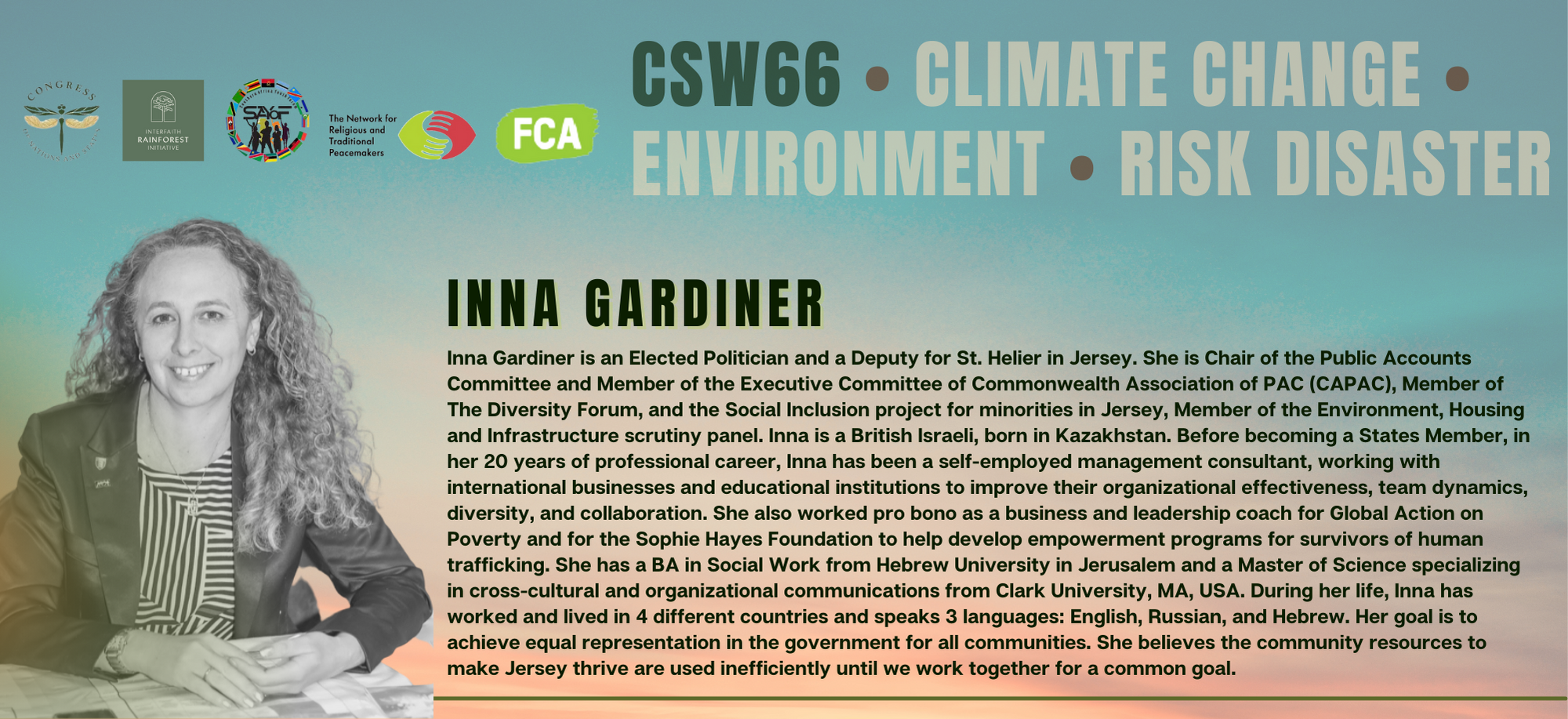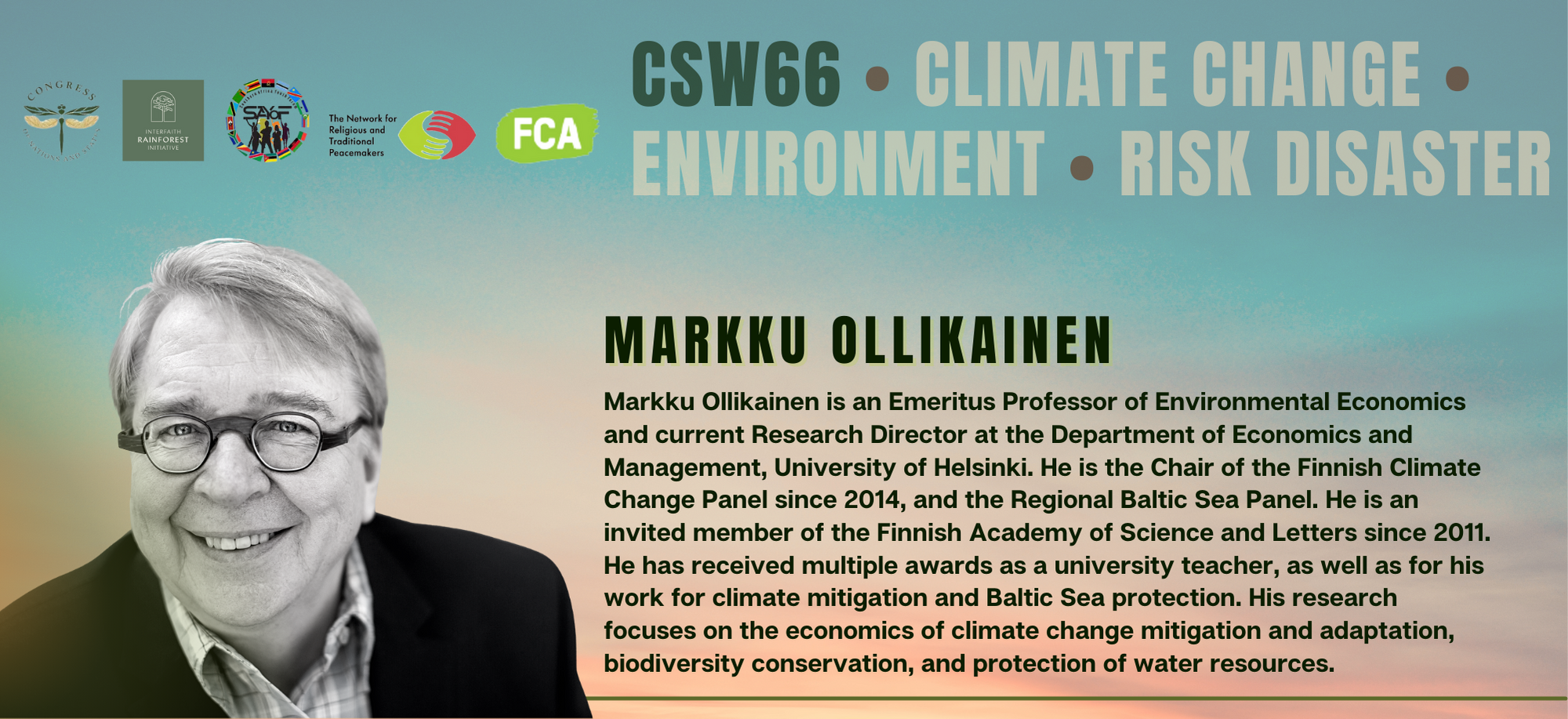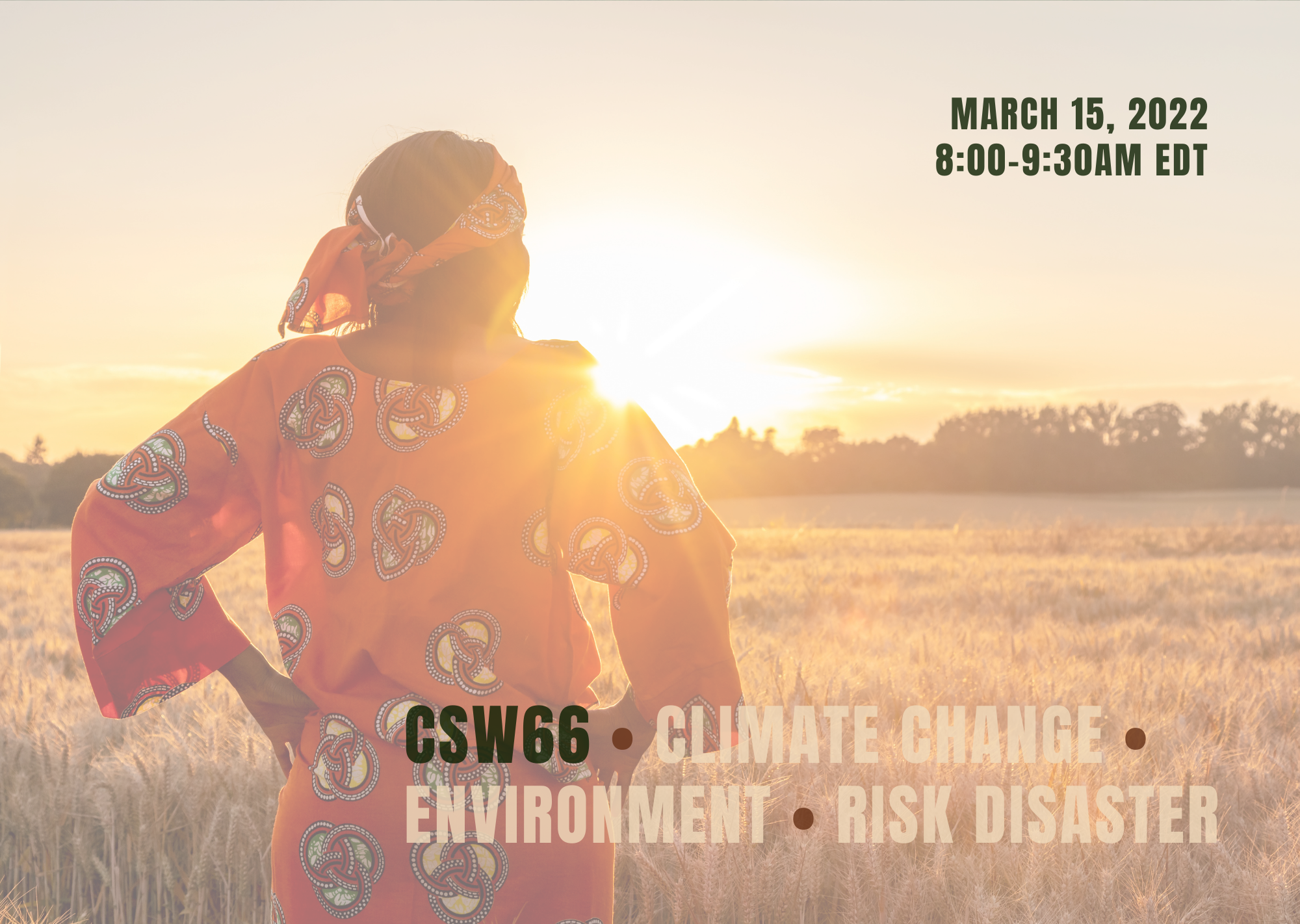
On Tuesday, March 15, from 8:00-9:30 AM EDT, the Network for Religious and Traditional Peacemakers, Congress of Nations and States, the Interfaith Rainforest Initiative, Finn Church Aid, and Southern Africa Youth Forum will co-host an event titled, “Traditional Actors Addressing the Impacts of Climate and Conflict Emergencies,” as part of the Sixty-Sixth Session of the UN Commission on the Status of Women (CSW).
Click here to register for the event
In the last 60 years, more than 40 percent of the world’s civil wars have been linked to control over natural resources such as land, oil, and water. With the current track of projections, this situation is only poised to get worse, with new and unprecedented impacts on the climate ecosystems, which we depend on to survive. Vulnerable and marginalized populations in society are at the greatest risk of climate crises, including women, the elderly, immigrants, people with disabilities, and indigenous peoples. Climate disasters impact men and women differently due to their power-differentiated roles in society, with women charged to care for the children, sick and elderly, as well as their lack of access to economic opportunities and access to resources. Women also depend on more natural resources for their livelihoods.
Traditional leaders and their communities, including community leaders such as clan elders and indigenous, ethnic, or tribal leaders, play a critical role in addressing climate emergencies that have a distinct harmful impact on women and girls. Currently, there are more than 370 million traditional and indigenous peoples living in 70 countries on six continents, with unique cultures distinct from the dominant societies in which they live and long-standing connections to particular ancestral lands. Traditional peoples have a mutual and distinct perspective and recognition around the community of all life, including respect for nature and the environment in accordance with spiritual beings and the Creator.
Traditional actors have been at the forefront of advocating for action to combat climate emergencies. In 2007, the Inter-Agency Support Group on Indigenous Issues held a meeting hosted by the Secretariat of the Convention on Biological Diversity, with the theme focused on, “Climate Change and Indigenous Peoples.” The meeting highlighted that mitigation measures are essential to prevent further impacts, which threaten indigenous and local communities vulnerable to climate change. Thus far, indigenous and local communities have largely been left out of the development of mitigation measures at the national and international levels. However, in their role as stewards of biodiversity and as holders of local and traditional knowledge relevant for conservation and sustainable use, indigenous and local communities have a unique contribution to make in mitigation initiatives. Further, some mitigation measures may have undesirable direct and indirect consequences for indigenous and local communities, including climate change being an additional factor impeding the realization of the rights of indigenous peoples to pursue their customary livelihood strategies. The 2021 Conference of Parties for the Global Climate Summit also included traditional communities but it is clear that more efforts must be made to increase the voices of traditional leaders and actors, specifically women.
In line with the priority theme of the sixty-sixth session of the Commission on the Status of Women (CSW) on advancing, “Achieving gender equality and the empowerment of all women and girls in the context of climate change, environmental and disaster risk reduction policies and programs,” the Generation Equality Action Coalition on Feminist Action for Climate Change, and the 2030 Sustainable Development Goals, the Network for Religious and Traditional Peacemakers, Congress of Nations and States, the Interfaith Rainforest Initiative, Finn Church Aid, and Southern Africa Youth Forum will highlight examples of traditional actors leading the way in fighting the climate crisis and its specific impacts on women and girls.
Meet the speakers!
Pakou Hang Executive Director for Hmong American Farmers Association
M Tongpang Longchar Initiatives of Change India
Fadjar Schouten-Korwa Coordinator for the Dutch Cooperating Organization for West Papua
Johnstone Kibor Mediator on Alternative Dispute Resolution
Dr. Mohamed Elsanousi Executive Director of the Network for Religious and Traditional Peacemakers
Jessica Roland Senior Specialist for Inclusive Peace for the Network for Religious and Traditional Peacemakers
Blanca Lucia Echeverry National Coordinator for the Inter-Religious Rainforest Initiative in Columbia
Maggie Mwape Regional Co-Chair for Southern Africa Youth Forum (SAYoF)
Inna Gardiner Elected Politician and Deputy for St. Helier in Jersey
Markku Ollikainen Emeritus Professor of Environmental Economics and current Research Director at the Department of Economics and Management, University of Helsinki
Event program
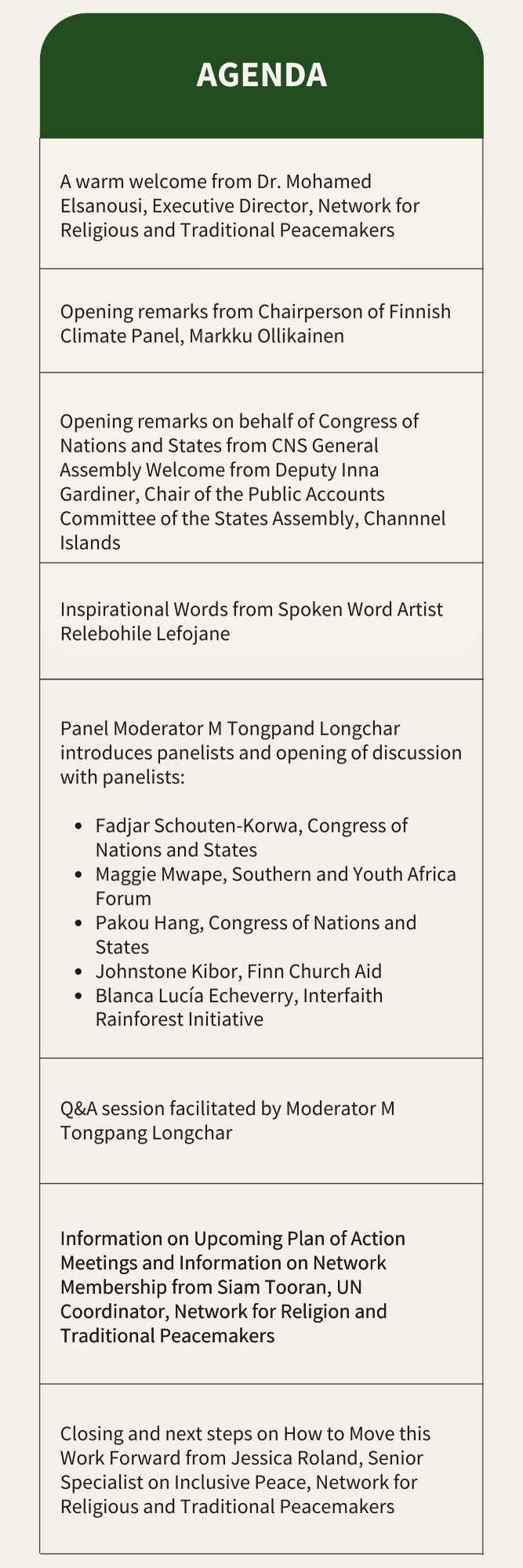
CSW66, which will take place this year from March 14 to 25, offers an opportunity each year for a global intergovernmental body to focus exclusively on advancing gender equality and the empowerment of women all over the world.
This year’s priority theme will focus on, “Achieving gender equality and the empowerment of all women and girls in the context of climate change, environmental and disaster risk reduction policies and programs.” Please join us for our event by registering.
You can also register as an advocate (for free) on the NGO CSW platform if you would like to attend other CSW events.

